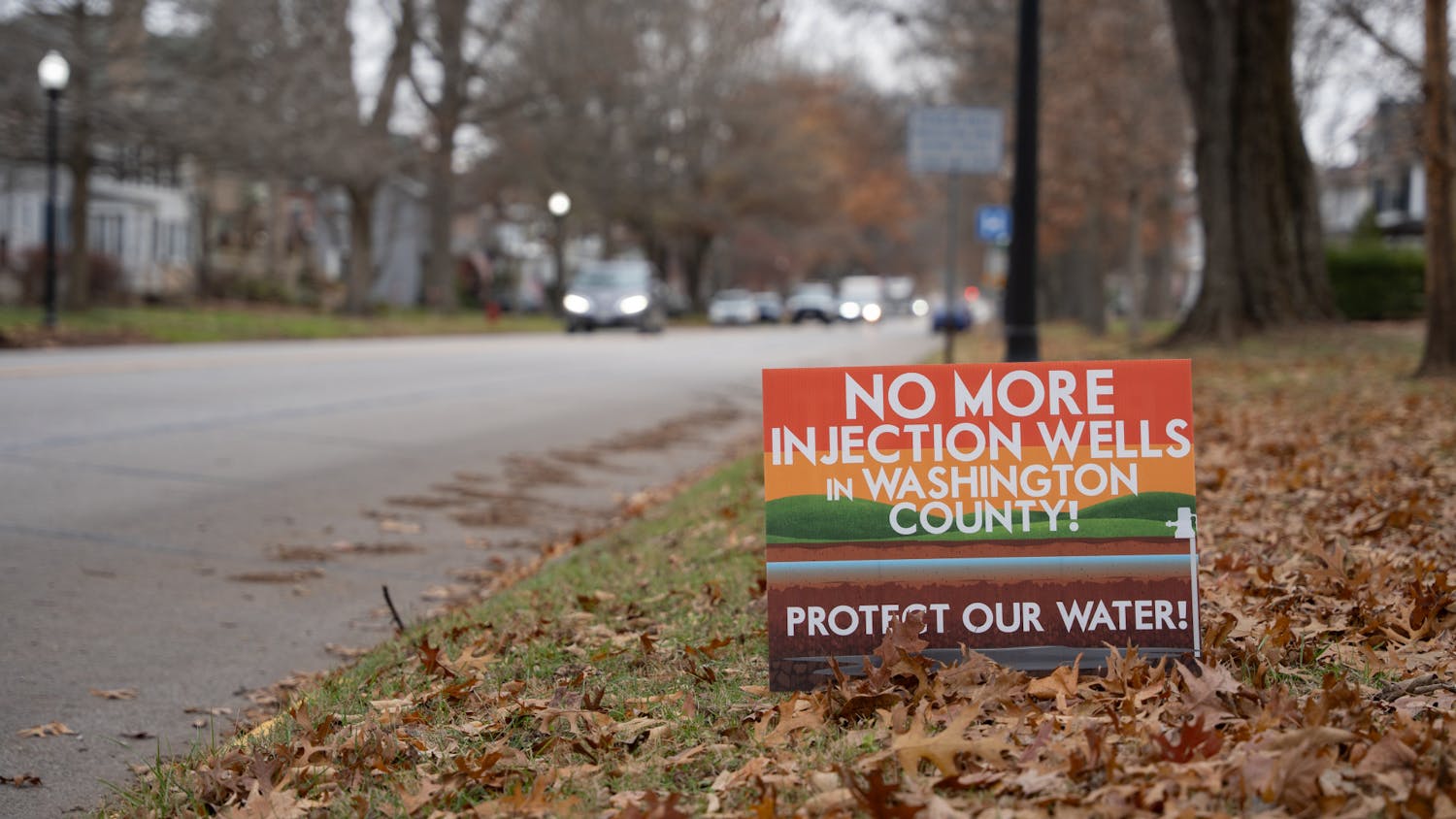Ohio University’s Heritage College of Osteopathic Medicine will soon be joining more than 100 universities nationwide to make advancements in mental health disorders common among veterans.
OU-HCOM is taking part in the Joining Forces initiative, to help military veterans, in partnership with the White House, the Association of American Medical Colleges and the American Association of Colleges of Osteopathic Medicine.
Universities nationwide signed the pledge to research mental health disorders common among veterans including, post-traumatic stress disorder, brain injuries and depression.
OU-HCOM signed the initiative earlier this month, but it is unclear how the program will be implemented into the college’s curriculum, said Jack Brose, dean of OU-HCOM.
“The military is very near and dear to my heart,” said Brose, who served in the military for nine years. “To make advancements (in PTSD) for the military and anything we could do for them is very important to us.”
Universities involved are expected to coordinate information on the disorders in addition to improving education on “military cultural competence,” said John Prescott, chief academic officer of the Association of American Medical Colleges.
“Anytime there is an effort by the university, or college or department to contribute to a real societal or health care or sociological challenge that society faces, it’s an important part of being a university — in the region, state or the world,” said Becky Watts, chief of staff to OU President Roderick McDavis.
The White House contacted the Association of American Medical Colleges about heading the project. The association agreed in December.
“We thought we might be able to assist in getting medical schools to sign on and raise awareness of this important issue to the faculty, students and staff of these institutions,” Prescott said. “We wanted to make sure we could provide the services to the military’s personnel — to veterans and families, give them the same level of service they have provided to our country.”
Universities don’t pay to take part in this program. Rather, they place a “renewed emphasis” on the effects of PTSD in their curriculum, Prescott said.
Of the 130 universities that have signed onto the program, six are in Ohio — including Case Western Reserve University and Ohio State University.
“It gives us the opportunity to hear what other scholars are doing,” said Clint Snyder, interim vice dean for education and academic affairs at Case Western University. “We’re not certain what innovative approach we will all take; that’s the strength of this initiative — it encourages the schools across the nation to work together, to see how they approach these new concepts.”
Those who suffer from PTSD might experience memory retention difficulties, irritability, hallucinations and flashbacks, according to the Mayo Clinic’s website.
“I’m glad we recognize the need for physicians to recognize these stresses others in the population don’t have,” said Bryan Martin, associate dean for graduate medical education at OSU. “Imagine what it must be like to be somebody who comes back and doesn’t feel the same as they did before.
Though they aren’t showing symptoms on the outside, they are injured just the same.”
sj950610@ohiou.edu





